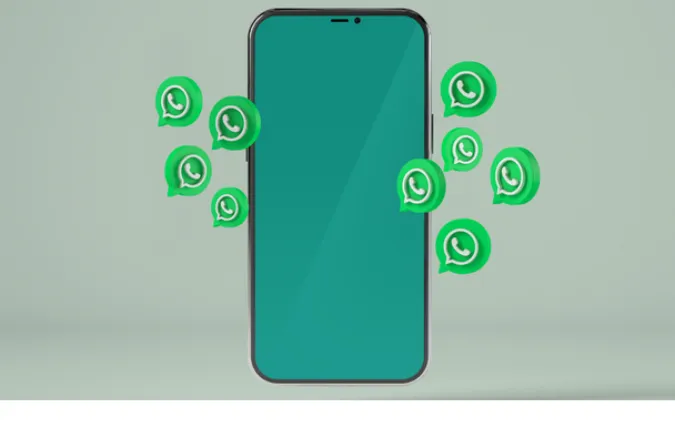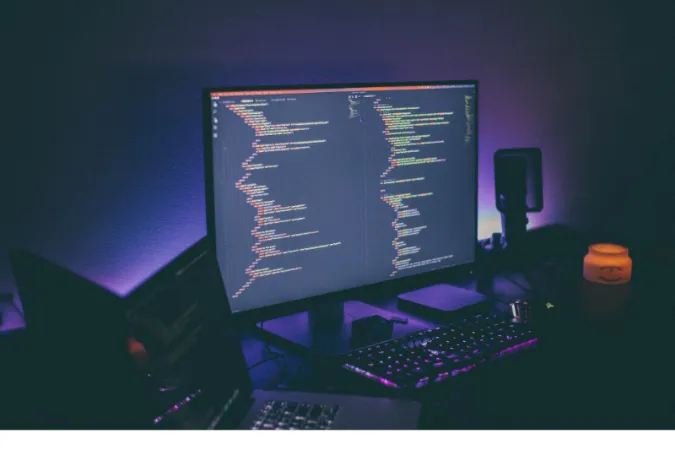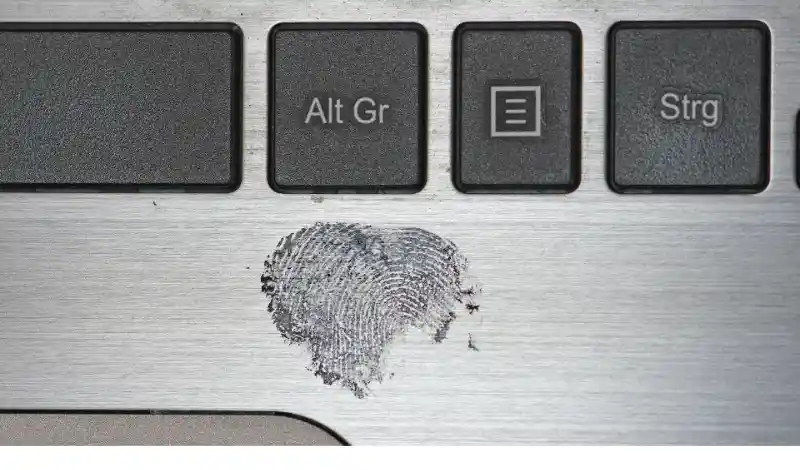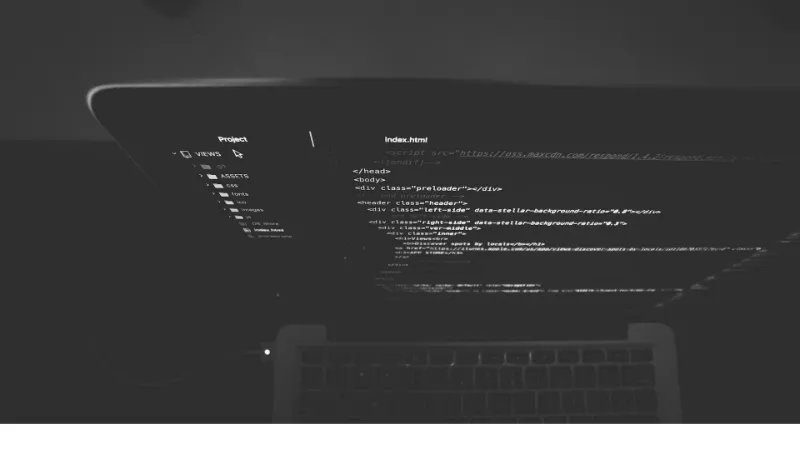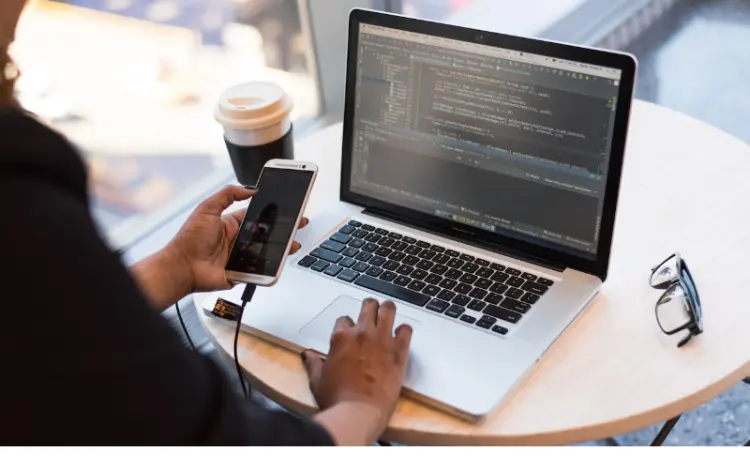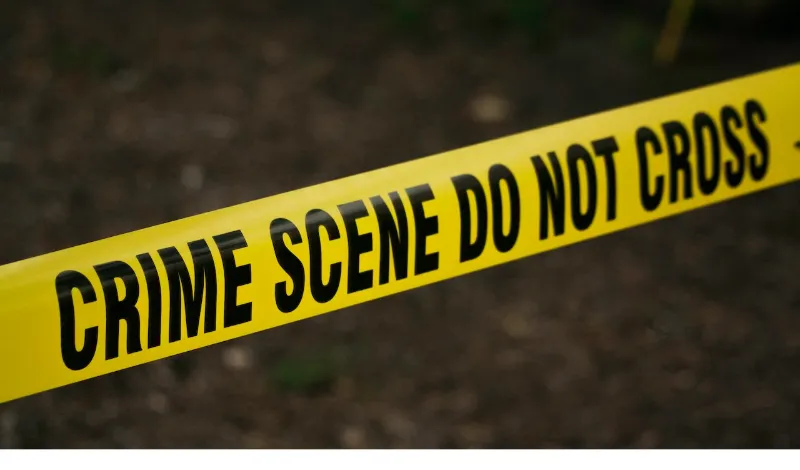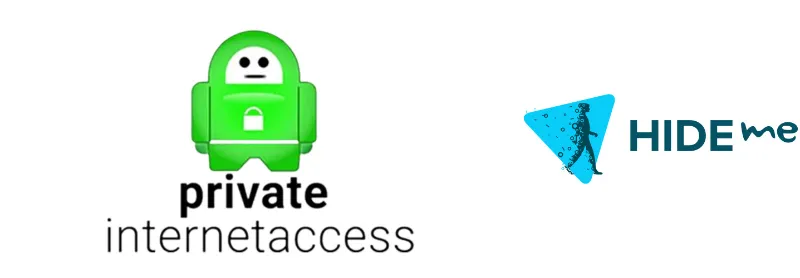If you’re like most of us, you’ve probably found yourself asking, “Are WhatsApp calls traceable?”
With over 2 billion users globally, WhatsApp has become a staple in our daily communication. It’s quick, it’s easy, and best of all, it’s free.
But with all this convenience, comes the inevitable question about privacy and security.
In this post, we will unravel the mystery behind WhatsApp’s encryption, traceability, and overall safety of your calls.
Quick Answer
In the realm of digital communication, nothing seems as safe and secure as a good ol’ WhatsApp call, right? Well, you’re not wrong to think so.
The quick answer to our question, “Are WhatsApp calls traceable?” is a resounding no.
You see, WhatsApp uses something known as end-to-end encryption. This fancy term means that only you and the person you’re communicating with can read what’s sent.
Not even WhatsApp itself can access your calls or messages. It’s like sending a sealed letter, where only the recipient has the unique key to unlock and read it.
So, to answer the PAA, “How private are WhatsApp calls?” In theory, they’re as private as can be in the digital world. WhatsApp can’t listen to your calls, and neither can anyone else. Now that’s a relief, huh?
Understanding WhatsApp’s Encryption
Now, let’s dive deeper into how this end-to-end encryption works. Picture this: You’re whispering a secret to your friend and in a room full of people.
You don’t want anyone else to hear what you’re saying, right? That’s where end-to-end encryption comes in. It’s like a direct whispering line between you and your friend, where no one else in the room can eavesdrop.
When you make a call on WhatsApp, your voice is turned into a digital code, scrambled up, and then sent to the recipient.
The recipient’s app then takes this scrambled code and turns it back into voice, a process known as decryption.
The key here is that this scrambling and unscrambling happens only on the devices at the end points – yours and your friend’s.
Even if someone were to intercept the call in the middle, all they’d get is a bunch of unintelligible gibberish.
Similarly, to address the PAA “Can law enforcement like the police trace WhatsApp calls?”, the answer is technically no.
Encryption ensures that the call data can’t be traced or deciphered without access to your or recipient’s device.
Privacy Concerns
So, we’ve established that your WhatsApp calls are encrypted and thus untraceable in transit, but that doesn’t mean there aren’t any privacy concerns associated with using the app.
When it comes to digital communications, privacy is always a top priority.
One major concern for users revolves around the data that WhatsApp collects. While the content of your calls and messages is encrypted and private, WhatsApp collects metadata about your usage.
Metadata, in simple terms, is data about data. In WhatsApp, this could be information like who you called, when you called them, and how long the call lasted.
However, even though this data is collected, it’s not shared freely. WhatsApp uses it to operate, provide, improve, understand, customize, support, and market their services.
On a side note, if you’re wondering about the kind of data some other apps collect, check out our articles on feeding lettuce to hedgehogs and the question “Can hedgehogs eat cabbage?” for a deep dive into the data collected by pet-related apps.
Privacy concerns also extend to potential hackers. Although WhatsApp calls are encrypted, if your or recipient’s phone is compromised, that could expose your calls and messages.
Legal Implications
Let’s shift gears a little and touch on the legal side of things. Some folks may ask, “Even though my WhatsApp calls are encrypted, could law enforcement or a court of law require WhatsApp to trace my calls?”
Well, here’s the thing. Even if law enforcement agencies were to approach WhatsApp with a warrant to provide call data, they would not be able to provide any useful information.
Remember our little chat about end-to-end encryption? That protective bubble ensures that nobody, not even WhatsApp itself, can listen in on your calls or provide a record of them.
However, it’s worth noting that, as I mentioned in the previous section, WhatsApp does collect some metadata. In some legal cases, law enforcement may be able to obtain this metadata with a proper legal warrant.
This can include details like when a call was made and how long it lasted, but not the content of the call itself.
In all cases, WhatsApp asserts that they push back on overly broad requests, and that they uphold their users’ privacy as their highest priority.
Potential Weaknesses in WhatsApp’s Security
WhatsApp prides itself on its robust security measures, particularly the end-to-end encryption we’ve discussed.
However, no system is entirely foolproof, and there can still be potential weaknesses, albeit not directly within the WhatsApp’s encryption.
One such weak point is on the user’s end. If your phone is compromised by malware, your encrypted WhatsApp calls could potentially be recorded after they have been decrypted on your device.
The malware could tap into your microphone or speaker, essentially “listening in” on your calls.
Another potential weak point lies in cloud backups. If you choose to back up your WhatsApp chats and call logs to the cloud, say on Google Drive or iCloud, WhatsApp’s end-to-end encryption does not protect these backups.
This means that anyone who gains access to your cloud storage could potentially view these backups.
Securing your cloud accounts with strong, unique passwords and two-factor authentication is important to mitigate this risk.
Enhancing Your WhatsApp Call Security
Now that we’ve outlined the potential security weaknesses, let’s turn the tables and talk about how you can bolster your WhatsApp call security.
After all, as Spiderman’s Uncle Ben once said, “With great power comes great responsibility,” and in our context, with great technology comes the responsibility to use it securely!
Here are some handy tips for ensuring your WhatsApp call security:
- Regularly Update Your App: WhatsApp often releases updates to enhance security and fix any identified vulnerabilities. So, keep your app up-to-date to ensure you’re benefiting from the latest security features.
- Use a Strong Pin and Two-Step Verification: Make sure to set a strong PIN for your WhatsApp account and enable two-step verification. This adds an extra layer of security, making it harder for anyone else to gain access to your account.
- Be Cautious With Unknown Links and Files: If you receive a link or file from an unknown number, it’s best not to open it. It could be a phishing attempt or contain malware that can compromise your device.
- Secure Your Cloud Backups: If you back up your chats to the cloud, make sure to secure your cloud account with a strong, unique password and enable two-factor authentication.
- Lock Your WhatsApp: WhatsApp provides an option to lock your app with your phone’s security key (fingerprint, face ID, etc.). Use this feature to prevent unauthorized access.
Frequently Asked Questions (FAQ)
This section will address some common questions about WhatsApp and its call traceability. Knowledge is power, after all!
Q1. Can WhatsApp Calls be Tapped by Hackers?
No, WhatsApp calls are protected by end-to-end encryption, meaning only the sender and recipient can access the call data.
However, if your device is compromised by malware, hackers might potentially gain access to your calls after they’ve been decrypted on your device.
Q2. Can WhatsApp Calls be Retrieved?
WhatsApp does not store calls on its servers, so they cannot be retrieved. However, if you’ve backed up your call logs to the cloud (like Google Drive or iCloud), you may be able to access them from there.
Remember that WhatsApp’s end-to-end encryption does not protect these backups.
Q3. Is WhatsApp Safe for Private Calls?
Thanks to end-to-end encryption, WhatsApp is generally considered safe for private calls.
However, users should be aware of potential vulnerabilities, such as compromised devices and insecure cloud backups, and follow best practices to enhance security, like the ones we discussed earlier.
Conclusion
So there you have it, folks – the nitty-gritty about the traceability of WhatsApp calls. The robust end-to-end encryption makes your calls virtually untraceable while they’re in transit.
Still, it’s essential to be aware of potential vulnerabilities and take proactive measures to secure your data.
Remember, securing your WhatsApp usage goes beyond ensuring your calls aren’t traceable.
It extends to being aware of the collected metadata, securing your cloud backups, and keeping your device free of malicious software.
In this digital age, where technology is ever-evolving, it’s important to stay informed about the tools we use every day. Knowledge, after all, is the key to using these tools responsibly and securely.
So whether you’re chitchatting with friends or conducting important business calls over WhatsApp, you can now do so with a better understanding of your privacy and security.

